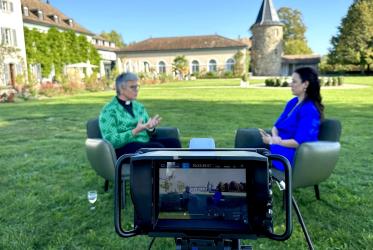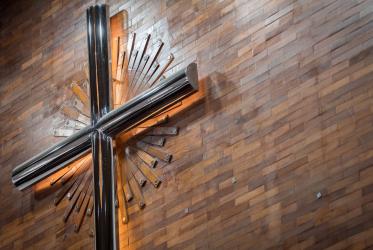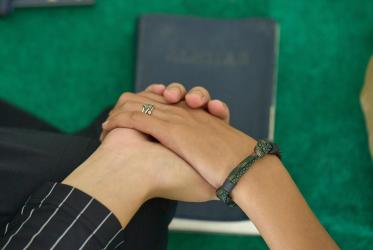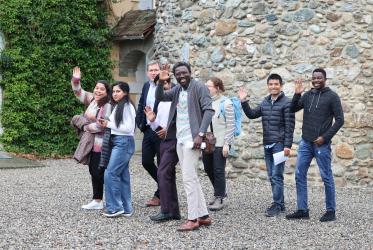Displaying 1 - 20 of 162
What can churches do to prevent modern slavery?
22 February 2024
Ellyanne Chlystun-Githae Wanjiku to COP28: “listen more to children”
13 December 2023
WCC webinar explores decolonizing beauty
11 December 2023
Young Black Europeans: “common witness has an open ear”
30 November 2023
WCC institute encouraged rethinking theology
23 November 2023
Thirty days that changed the ecumenical movement
23 October 2023


















